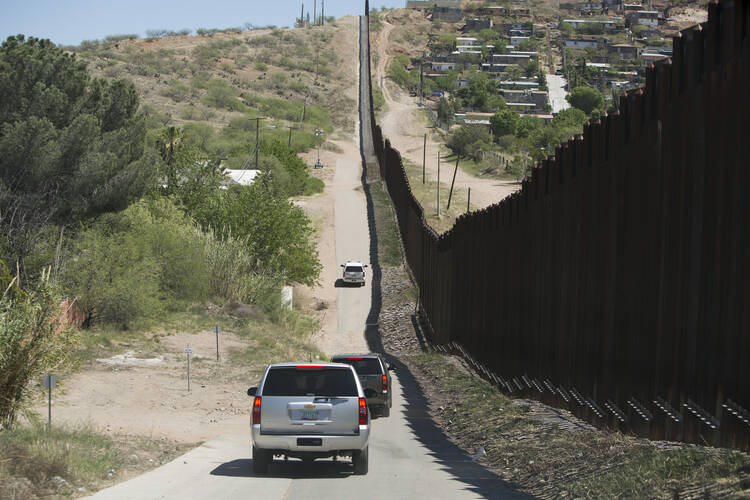Growing number of unaccompanied minors entering U.S. causes concern While Auxiliary Bishop Eusebio L. Elizondo of Seattle was in El Salvador recently, an immigration-reform advocate shared his view on the topic that was the focus of the bishop's trip: the increase in unaccompanied minors making the often dangerous journey from Central America and Mexico into the United States.
"We need to address all immigration issues in general, but especially this," Jose Ortiz, a pastoral assistant at St. Charles Parish in Burlington, said in a telephone interview on May 21 with Northwest Catholic online, a news site of the Seattle Archdiocese.
Ortiz said that just as with adult migrants, the minors take a chance, "to come here for a better life, to escape poverty." He said more needs to be done for Mexico and Central American countries to improve their economic conditions so that fewer people -- adults and youths -- seek to make that dangerous journey northward.
President Barack Obama announced today the establishment of an interagency group to handle this large and growing influx of children streaming into the United States without parents or relatives accompanying them. The Obama administration estimates that around 60,000 unaccompanied minors will enter the United States illegally this year and projects that number to grow to nearly 130,000 next year. As recently as 2011, the number was only around 6,000.
In a memo that describes an “urgent humanitarian situation,” Obama has put the Federal Emergency Management Agency in charge of coordinating humanitarian relief to the children, including housing, care, medical treatment and transportation.
In Seattle Ortiz told the story of a Mexican man, now 24, who at age 14 made the precarious trek with a group that did not include his parents. The man, Gabriel Juarez, now married and father of three, began his journey from southern Mexico into Arizona and up to Washington state, where he settled in Skagit County with his father and mother, who were already living there.
"The heat in Arizona was so hot that it made his socks stick to his skin," Ortiz said. "My mother took him to the hospital (Skagit Valley Hospital), to the emergency room; they had to surgically remove his socks from his feet."
Ortiz said Juarez, who attends Mass at St. Charles and remains an undocumented immigrant, worked the berry fields in the Skagit Valley, but that he now works in construction.
Juarez, in a telephone interview, later spoke with some reluctance, but offered some comments; he said the group with which he traveled included a male cousin who was in his late 20s at the time -- his only relative in the group. He said the two-week trip began by car, then on foot in the Arizona heat, and later by bus into Washington state.
"My parents were here, and they wanted me to come," said Juarez, noting that he missed his father and mother, not having seen them for three years. In the years that followed, his three sisters came but have since returned to Mexico.
"Es muy peligroso (It is a very dangerous)," Juarez said of the journey that he and so many others have made. He said he and his family were thankful for assistance they have received from St. Charles Parish -- food, clothing and household essentials. And he noted they remain grateful for the ongoing spiritual support.
Bishop Elizondo made the trip to El Salvador trip on May 19-22 as chairman of the U.S. Conference of Catholic Bishops' Committee on Migration. He went with Bishop Anthony B. Taylor of Little Rock, Arkansas, a member of the committee.
"It is clear that violence perpetrated by gangs and organized crime in parts of Central America is a contributing factor to the large number of children fleeing," Bishop Elizondo said in a statement released by the USCCB.
"Steps must be taken to protect these children and to ensure their well-being in their communities." The bishop noted that this is not only an immigration issue, "but also one that touches upon foreign policy and assisting these countries to protect their citizens, especially the most vulnerable."








